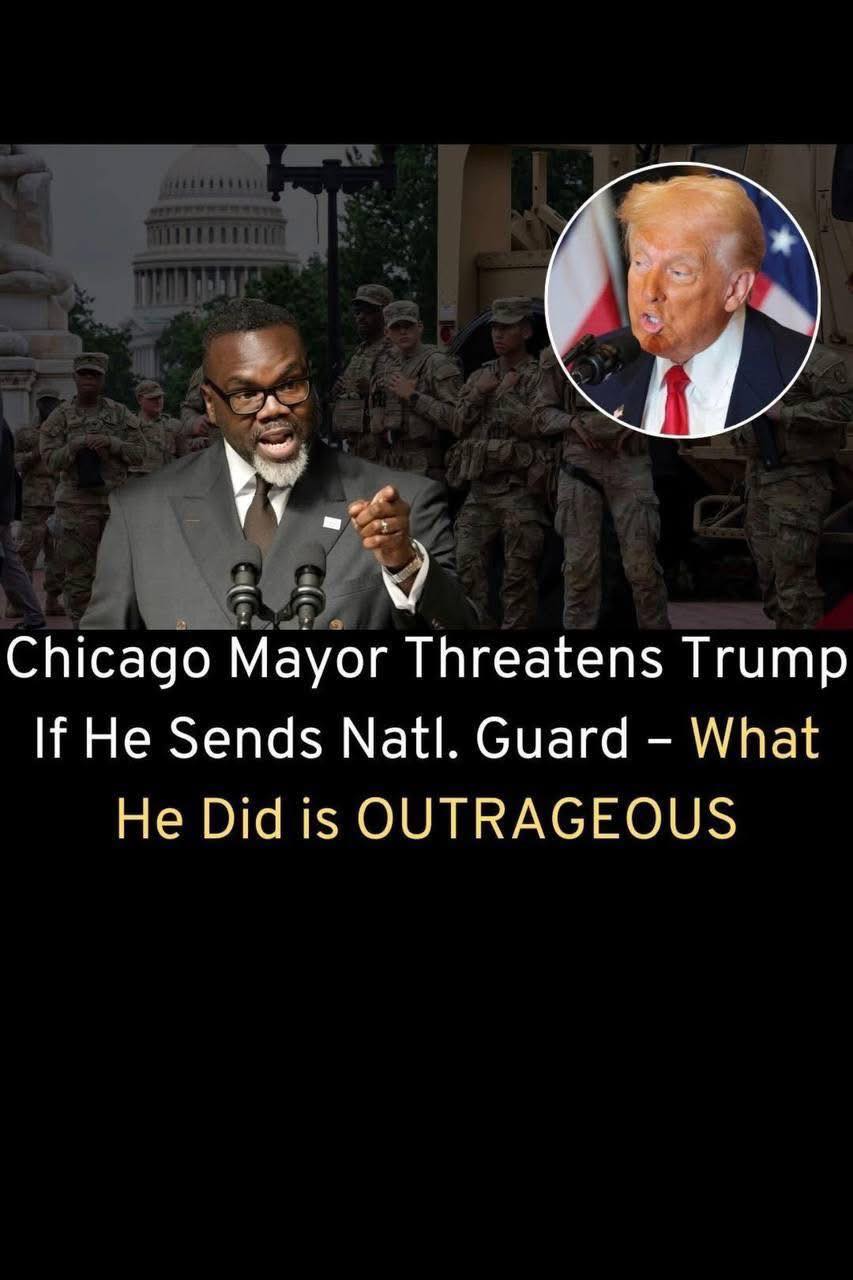Tensions between the White House and major U.S. cities escalated again this weekend after Chicago Mayor Brandon Johnson warned that residents of his city would “rise up” if President Donald Trump follows through on threats to send federal agents or National Guard troops as part of a national crime crackdown.
Trump Targets Chicago in Crime Initiative
President Trump, fresh off declaring a “crime emergency” in Washington, D.C., suggested that Chicago could be next in line for federal intervention. The President has argued that violent crime remains unacceptably high in several urban areas, and that local officials have failed to bring it under control.
Chicago, long a focal point in debates over crime and policing, has seen homicide and carjacking rates fluctuate over the past several years. While some categories of violent crime have fallen since 2023, other offenses — particularly property crimes and robberies — remain a pressing concern for residents.
In remarks over the weekend, Trump implied that deploying federal resources, including the National Guard, may be necessary to stabilize crime-ridden neighborhoods.
Johnson’s Fierce Pushback
Mayor Johnson, however, strongly rejected the notion that Chicago needs federal troops patrolling its streets. Speaking to MSNBC, he called the plan both unnecessary and dangerous, framing it as part of what he described as an “authoritarian overreach.”
“The city of Chicago does not need a military-occupied state. That’s not who we are,” Johnson said. He praised leaders in other Democratic-led cities, such as Los Angeles Mayor Karen Bass, for resisting similar federal efforts.
“They don’t have police power. There’s nothing they can do,” Johnson insisted, arguing that the presence of federal troops would create more division than security.
He went further, promising to take both legal and political action against the move:
“We’ll take legal action, but the people of this city are accustomed to rising up against tyranny. And if that’s necessary, I believe that the people of Chicago will stand firm alongside of me as I work every single day to protect the people of this city.”
A Clash of Narratives
Johnson framed Chicago as one of the nation’s most resilient and diverse cities — a place built on the values of working people and immigrant communities. “We’re not going to surrender our humanity to this tyrant,” he said, in one of his most direct rebukes of the Trump administration to date.
Illinois Governor J.B. Pritzker echoed Johnson’s criticism, labeling Trump’s threat to send in federal forces a “manufactured crisis.” Both leaders argue that local law enforcement, community programs, and city initiatives are already working to reduce crime and that federal interference would undermine public trust.
What’s Next
It remains unclear whether Trump will follow through with a formal order targeting Chicago. In Washington, D.C., his administration has already deployed federal agents and National Guard units, sparking controversy but also early reports of a slight drop in crime rates.
If Chicago becomes the next test case, it could set off a high-stakes legal battle over the limits of presidential authority and the rights of states and cities to govern their own public safety strategies.
For now, Johnson’s message is clear: if Trump sends federal troops into Chicago, City Hall — and, he insists, the people — will resist.
